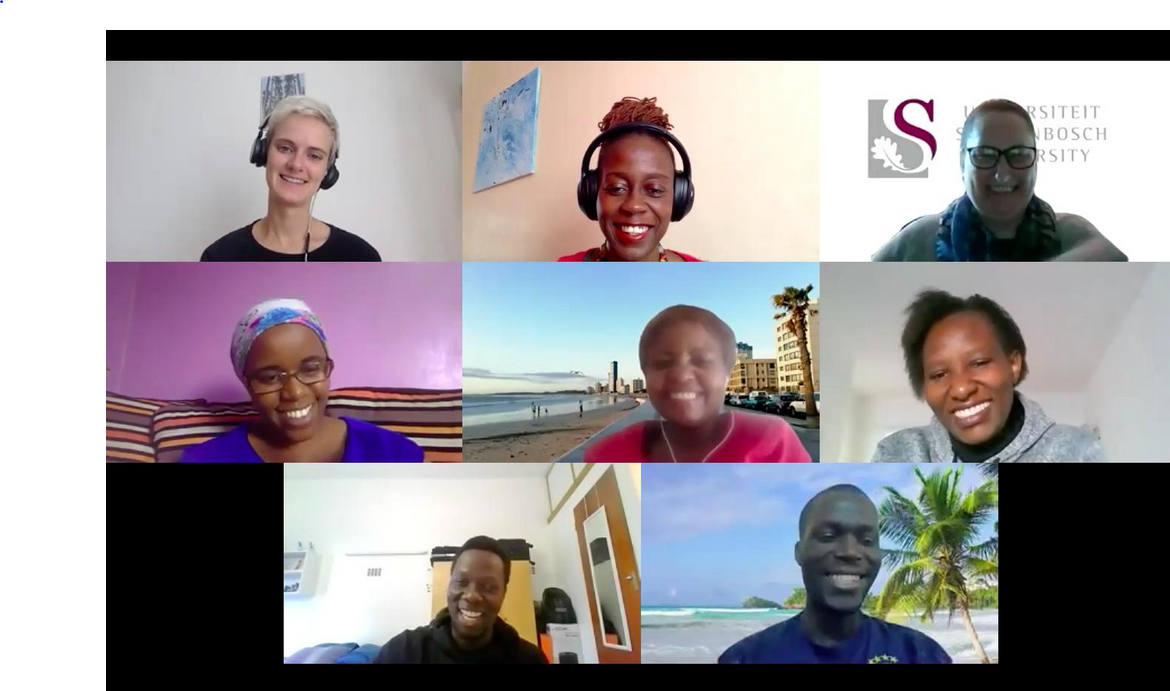
by jmusango | Jun 25, 2020 | News
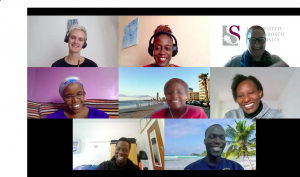 What would you do if you were to think without a box?
What would you do if you were to think without a box?
On 23 June 2020 GENS Team kickstarted monthly working sessions, thanks to our GENS PI from the University of Nairobi, Dr Amollo Ambole, for initiating the idea!
As outcome based meetings, we encourage creativity, sharing, brainstorming and adding value to each of the GENS Team members.
All smiles after a very productive kick-off!
“The flower that blooms in adversity is the most rare and beautiful of all” – Mulan
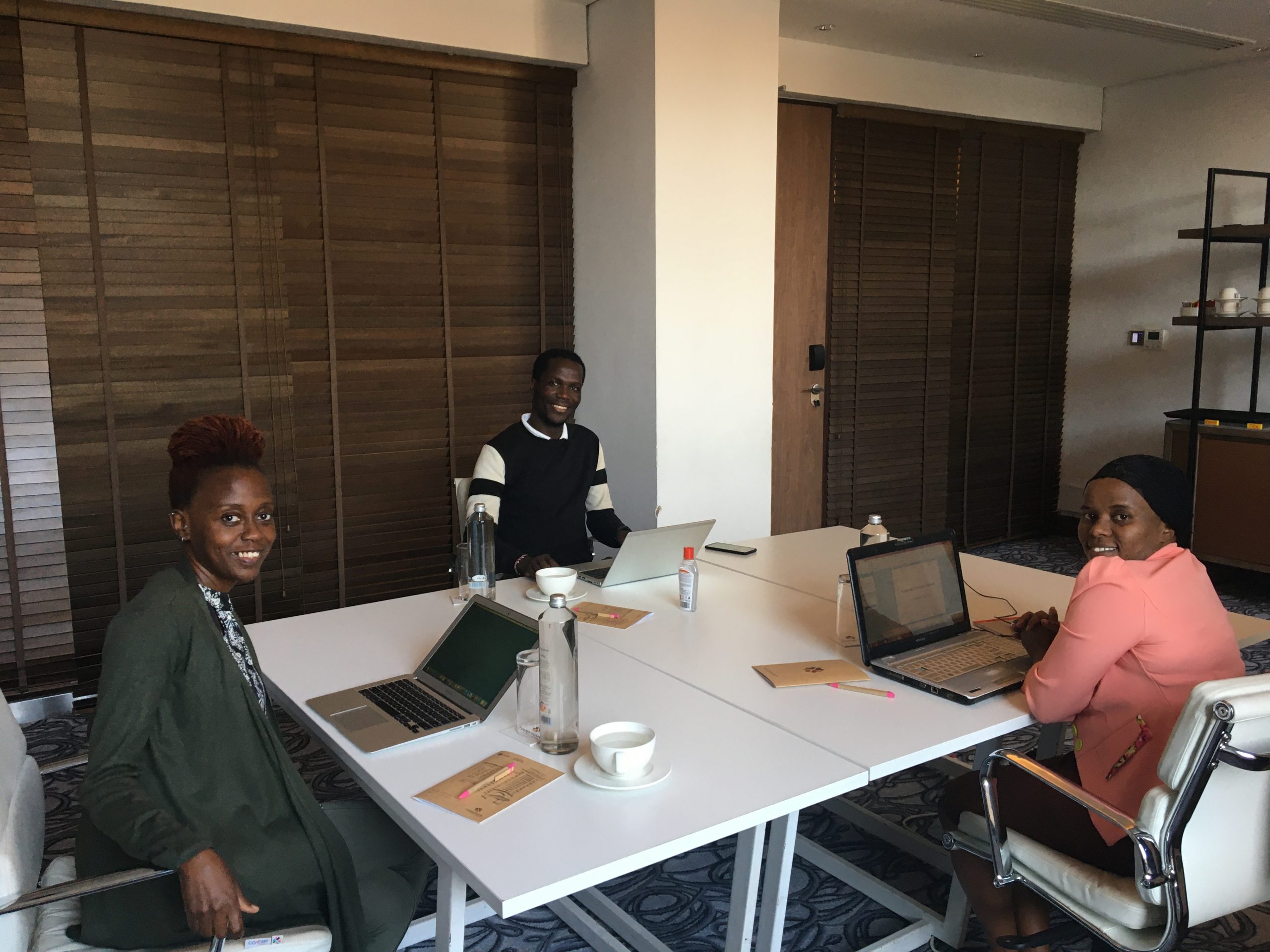
by jmusango | Jun 23, 2020 | News
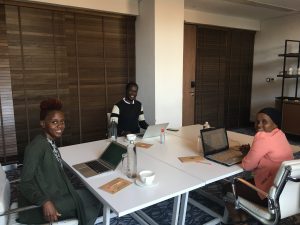 On the 2nd of June 2020, the GENS Nairobi research team from the University of Nairobi met with potential stakeholders from Mathare informal settlement in Nairobi, Kenya. The meeting aimed to kickstart the stakeholder engagement process by introducing GENS research to community leaders from Mathare. In a two-hour meeting, the participants explored the diverse range of stakeholders in Mathare and the methods that we could use to engage with them in GENS research. Throughout the discussion, the Mathare community leaders demonstrated a willingness to work with the GENS Nairobi team.
On the 2nd of June 2020, the GENS Nairobi research team from the University of Nairobi met with potential stakeholders from Mathare informal settlement in Nairobi, Kenya. The meeting aimed to kickstart the stakeholder engagement process by introducing GENS research to community leaders from Mathare. In a two-hour meeting, the participants explored the diverse range of stakeholders in Mathare and the methods that we could use to engage with them in GENS research. Throughout the discussion, the Mathare community leaders demonstrated a willingness to work with the GENS Nairobi team.
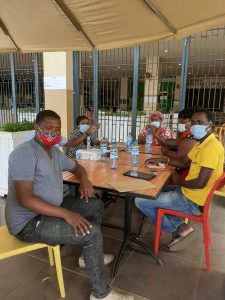
The GENS team also gained valuable insights into the complex governance structure within Mathare, which is a mix of formal and informal sub-structures. In a follow-up research meeting, the team used these insights to lay the groundwork for engaging with the Mathare community. In line with GENS research objectives, the Nairobi team will continue to engage with stakeholders from Mathare, as well as from energy policy, and expert communities in Kenya. As always, the team will adhere to the safety measures on the COVID 19 pandemic provided by Kenya’s national ministry of health.
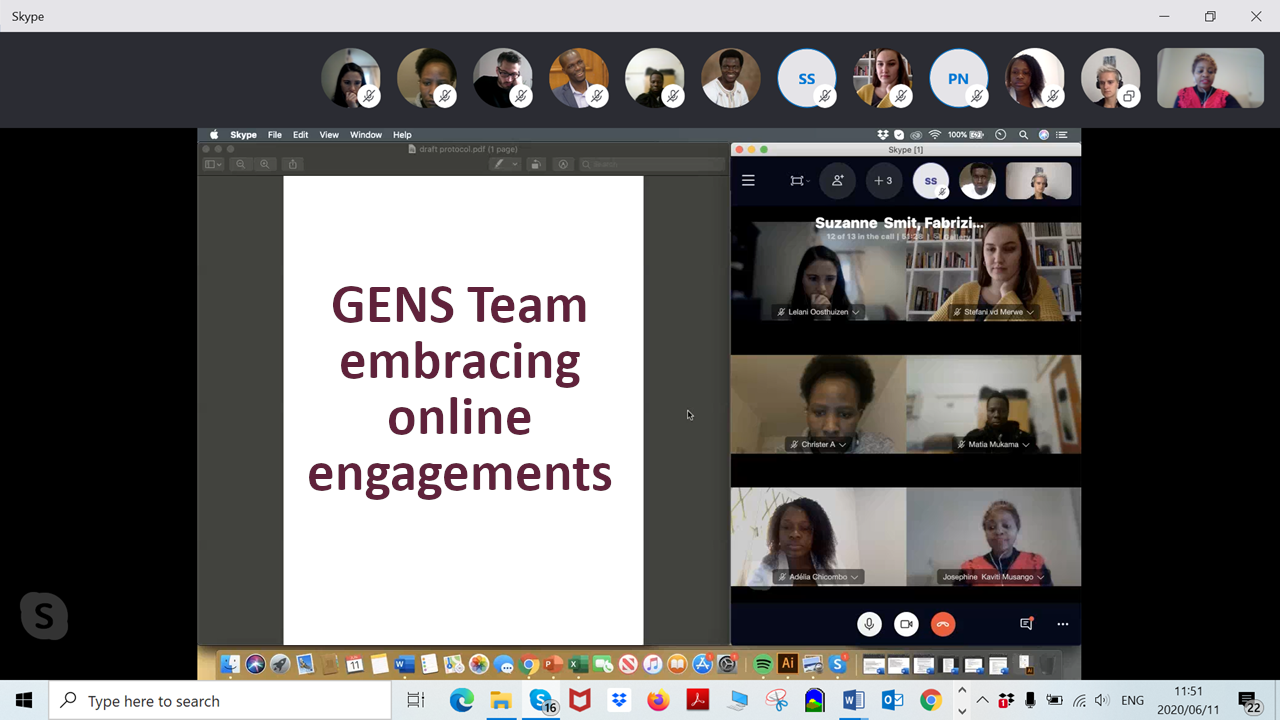
by jmusango | Jun 12, 2020 | News
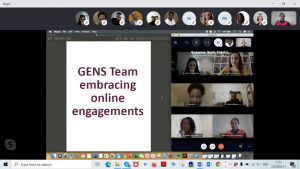 The GENS Researchers are embracing the new ways of doing research. Setting up of GENS Living Labs in Groenheuwel in Paarl and Mathare in Nairobi is the core of GENS Research. It requires us to engage with the communities and collect both quantitative and qualitative data. Qualitative data collection involves face to face engagements. However, how can we collect qualitative data when the conventional methods are no longer applicable?
The GENS Researchers are embracing the new ways of doing research. Setting up of GENS Living Labs in Groenheuwel in Paarl and Mathare in Nairobi is the core of GENS Research. It requires us to engage with the communities and collect both quantitative and qualitative data. Qualitative data collection involves face to face engagements. However, how can we collect qualitative data when the conventional methods are no longer applicable?
The curious GENS Team is exploring innovative ways of doing both qualitative and quantitative research. We see the current situation as a positive unintended consequence that the GENS Trilateral Chair hopes to contribute!
“If you want to change the world, you must be your very best in the darkest moment” – Naval Adm. William H. McRaven
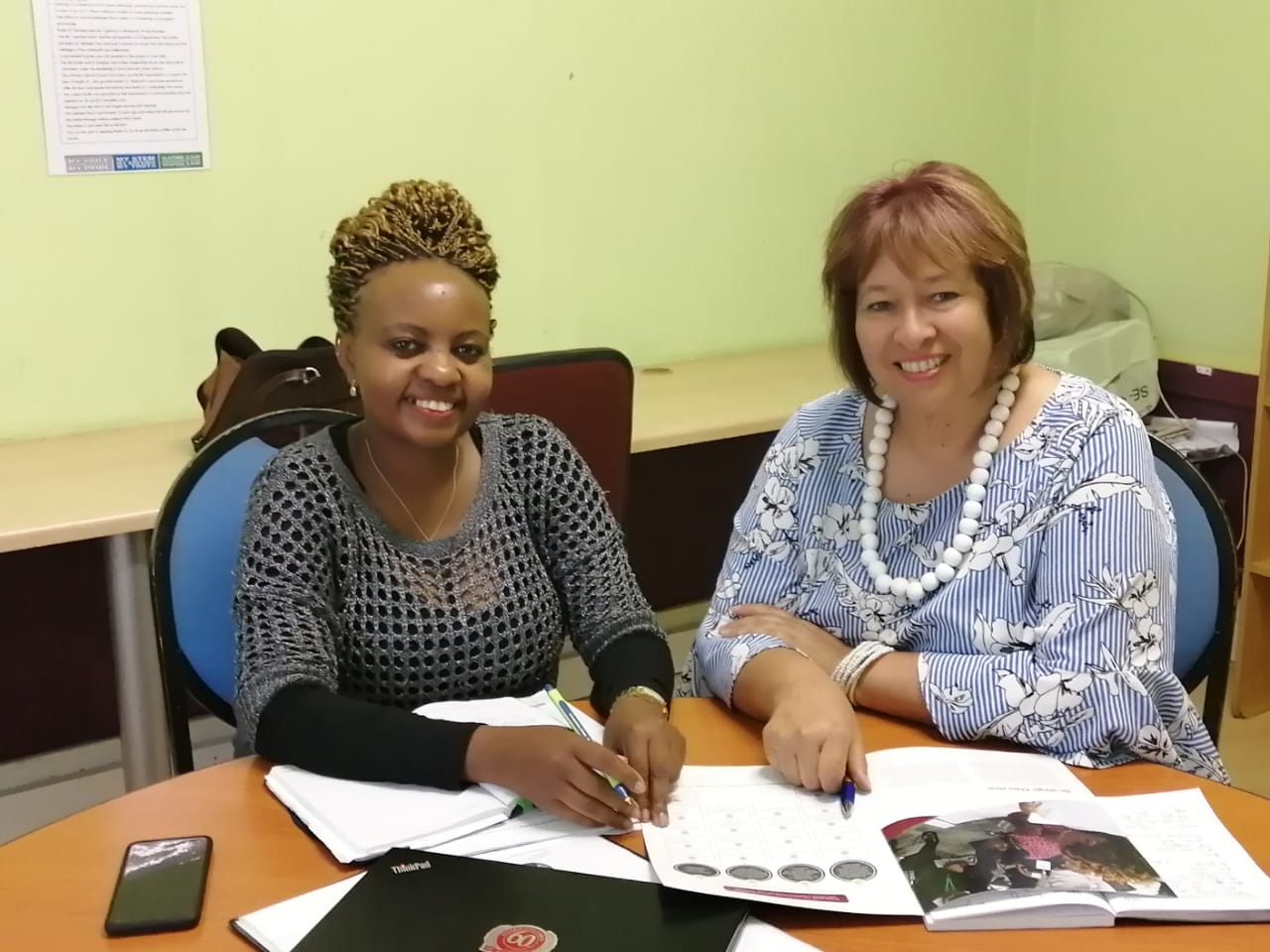
by rspiers | Jun 12, 2020 | News
True to its commitment to bring about social, cultural, environmental and economic development and change in communities, Stellenbosch University (SU) recently signed a Memorandum of Agreement (MoA) with Radio KC, a leading community radio station in the greater Paarl and Wellington areas.
Read more…
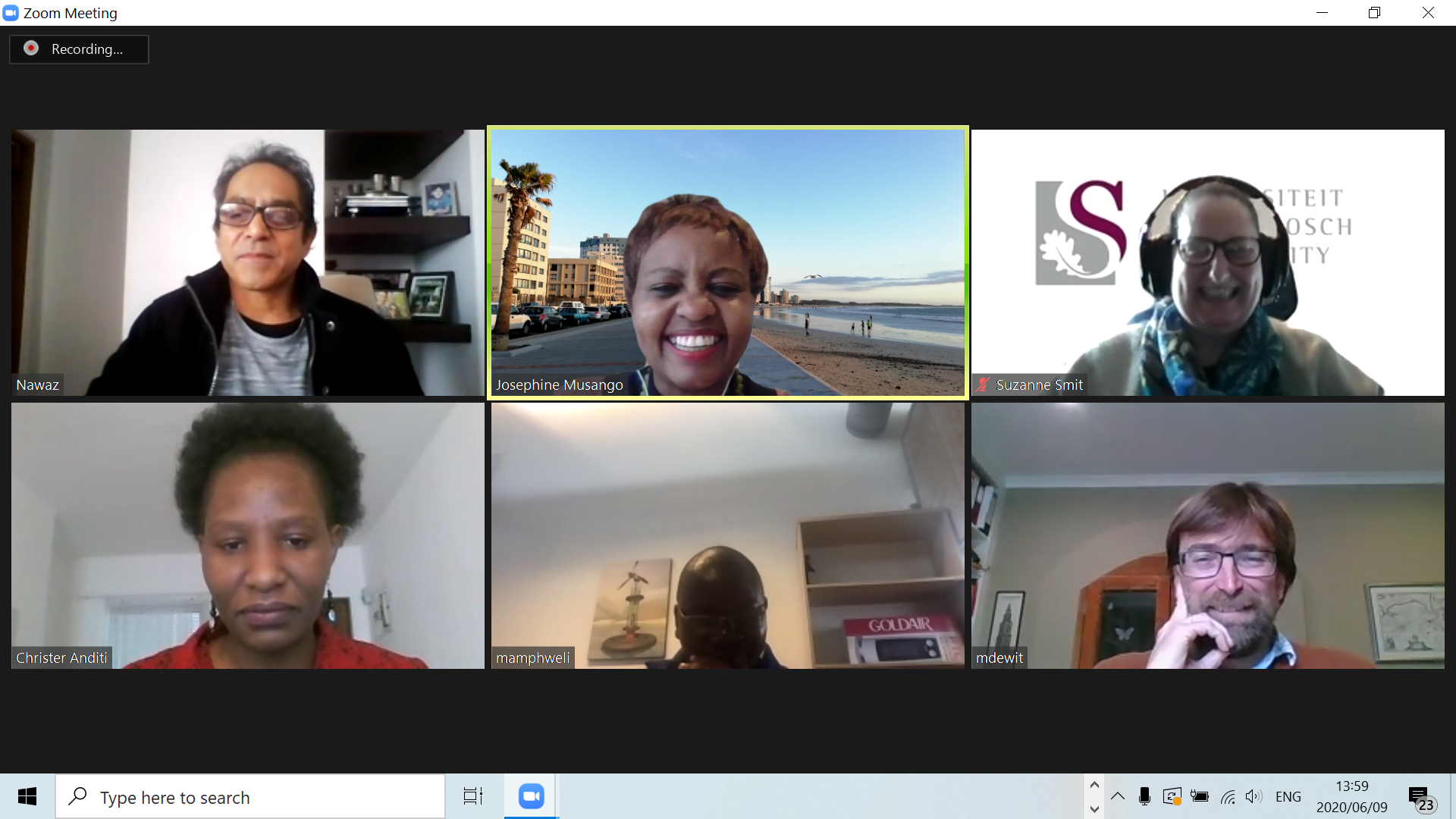
by jmusango | Jun 11, 2020 | News
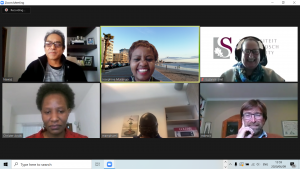 On behalf of GENS Team, we congratulate Christer Anditi, GENS PhD Researcher, for successfully getting her PhD proposal approved by the Academic Committee on 9 June 2020, despite the challenging conditions.
On behalf of GENS Team, we congratulate Christer Anditi, GENS PhD Researcher, for successfully getting her PhD proposal approved by the Academic Committee on 9 June 2020, despite the challenging conditions.
The GENS Team is over the moon for Christer’s achievement! Well done!
“Opportunities to find deeper powers within ourselves come when life seems most challenging.” – Joseph Campell
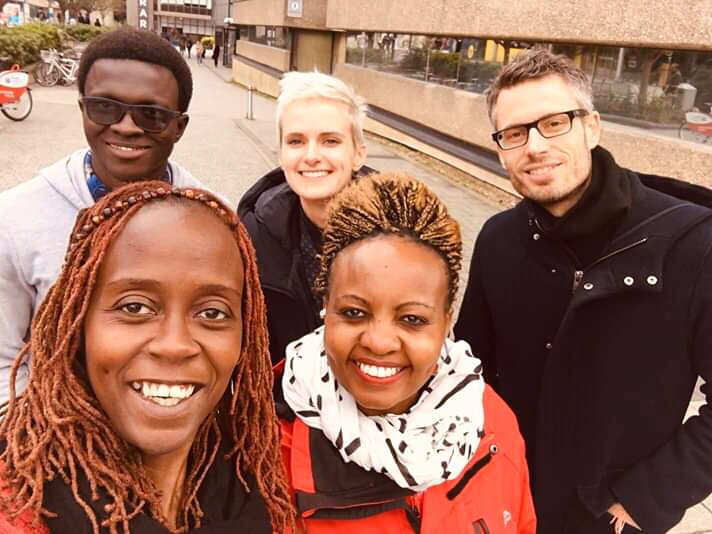
by jmusango | Mar 19, 2020 | News
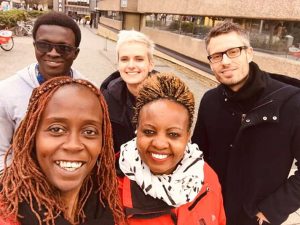 Researchers under the Africa-UK Trilateral Research Chair on Mainstreaming Gender for Energy Security in Poor Urban Environments (GENS) participated in a quintessential and synergizing workshop between the 9-13 March 2020 at the College of Engineering, Design and Physical Sciences, Brunel University London. The attendance of the workshop was graced with the Chairholder, Prof Josephine Kaviti Musango from Stellenbosch University, the Principal Investigators in the Trilateral Research, Dr Fabrizio Ceschin of Brunel University London, and Dr Amollo Ambole from the University of Nairobi. Also present was Dr Aine Petrulaityte of Brunel University London and Dr Benjamin Batinge from Stellenbosch University, both postdoctoral research fellows in GENS.
Researchers under the Africa-UK Trilateral Research Chair on Mainstreaming Gender for Energy Security in Poor Urban Environments (GENS) participated in a quintessential and synergizing workshop between the 9-13 March 2020 at the College of Engineering, Design and Physical Sciences, Brunel University London. The attendance of the workshop was graced with the Chairholder, Prof Josephine Kaviti Musango from Stellenbosch University, the Principal Investigators in the Trilateral Research, Dr Fabrizio Ceschin of Brunel University London, and Dr Amollo Ambole from the University of Nairobi. Also present was Dr Aine Petrulaityte of Brunel University London and Dr Benjamin Batinge from Stellenbosch University, both postdoctoral research fellows in GENS.
The team worked on driving GENS overall objective, setting timelines for specific tasks, clarifying institutional roles, integrating the different work packages, and building the capacity of the team to co-design to achieve the project goals. They also toured the Design Department to witness some of the tools and equipment the students use to design prototype for their projects.

 What would you do if you were to think without a box?
What would you do if you were to think without a box?


 On the 2nd of June 2020, the GENS Nairobi research team from the University of Nairobi met with potential stakeholders from Mathare informal settlement in Nairobi, Kenya. The meeting aimed to kickstart the stakeholder engagement process by introducing GENS research to community leaders from Mathare. In a two-hour meeting, the participants explored the diverse range of stakeholders in Mathare and the methods that we could use to engage with them in GENS research. Throughout the discussion, the Mathare community leaders demonstrated a willingness to work with the GENS Nairobi team.
On the 2nd of June 2020, the GENS Nairobi research team from the University of Nairobi met with potential stakeholders from Mathare informal settlement in Nairobi, Kenya. The meeting aimed to kickstart the stakeholder engagement process by introducing GENS research to community leaders from Mathare. In a two-hour meeting, the participants explored the diverse range of stakeholders in Mathare and the methods that we could use to engage with them in GENS research. Throughout the discussion, the Mathare community leaders demonstrated a willingness to work with the GENS Nairobi team.

 The GENS Researchers are embracing the new ways of doing research. Setting up of GENS Living Labs in Groenheuwel in Paarl and Mathare in Nairobi is the core of GENS Research. It requires us to engage with the communities and collect both quantitative and qualitative data. Qualitative data collection involves face to face engagements. However, how can we collect qualitative data when the conventional methods are no longer applicable?
The GENS Researchers are embracing the new ways of doing research. Setting up of GENS Living Labs in Groenheuwel in Paarl and Mathare in Nairobi is the core of GENS Research. It requires us to engage with the communities and collect both quantitative and qualitative data. Qualitative data collection involves face to face engagements. However, how can we collect qualitative data when the conventional methods are no longer applicable?

 On behalf of GENS Team, we congratulate Christer Anditi, GENS PhD Researcher, for successfully getting her PhD proposal approved by the Academic Committee on 9 June 2020, despite the challenging conditions.
On behalf of GENS Team, we congratulate Christer Anditi, GENS PhD Researcher, for successfully getting her PhD proposal approved by the Academic Committee on 9 June 2020, despite the challenging conditions.
 Researchers under the Africa-UK Trilateral Research Chair on Mainstreaming Gender for Energy Security in Poor Urban Environments (GENS) participated in a quintessential and synergizing workshop between the 9-13 March 2020 at the College of Engineering, Design and Physical Sciences, Brunel University London. The attendance of the workshop was graced with the Chairholder, Prof Josephine Kaviti Musango from Stellenbosch University, the Principal Investigators in the Trilateral Research, Dr Fabrizio Ceschin of Brunel University London, and Dr Amollo Ambole from the University of Nairobi. Also present was Dr Aine Petrulaityte of Brunel University London and Dr Benjamin Batinge from Stellenbosch University, both postdoctoral research fellows in GENS.
Researchers under the Africa-UK Trilateral Research Chair on Mainstreaming Gender for Energy Security in Poor Urban Environments (GENS) participated in a quintessential and synergizing workshop between the 9-13 March 2020 at the College of Engineering, Design and Physical Sciences, Brunel University London. The attendance of the workshop was graced with the Chairholder, Prof Josephine Kaviti Musango from Stellenbosch University, the Principal Investigators in the Trilateral Research, Dr Fabrizio Ceschin of Brunel University London, and Dr Amollo Ambole from the University of Nairobi. Also present was Dr Aine Petrulaityte of Brunel University London and Dr Benjamin Batinge from Stellenbosch University, both postdoctoral research fellows in GENS.